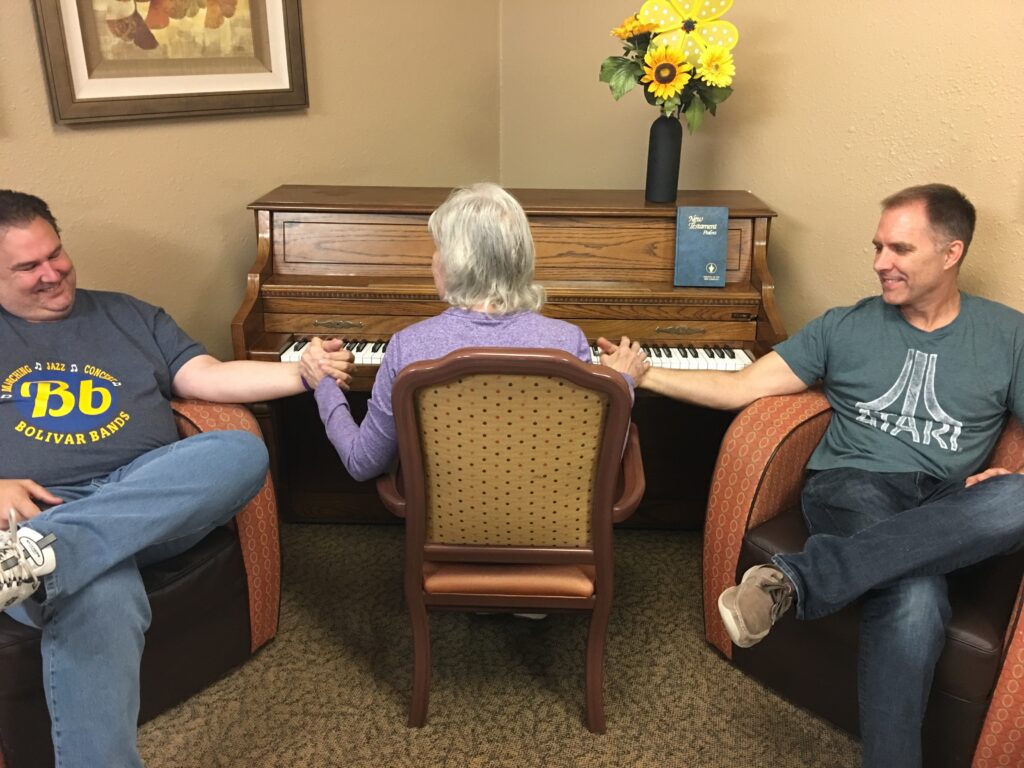Posted 6-12-19… but leaving on top of the post list due to its more important content. (Click here to return to the main page for newer content)
One of my very favorite resources on the Alzheimer’s Association website (and there are many!) is their cornerstone article “10 Early Signs and Symptoms of Alzheimer’s“. This list is not designed to cover every possible sign of dementia and it reminds us that there are lesser versions of these signs that can just part of normal aging. However, this list is a good jumping off point for someone worried about themselves or a loved one to have a conversation with a primary care physician should they have a big issue with several of the list. If there is a limitation to this list, it is hard to remember or recall in conversation and that it uses of medical jargon/fancy terms. With this in view and with the importance of early diagnosis in mind for the beginning of treatment, the setting up of a support structure and a bunch of other reasons, I submit to you my little cornbread-between-the-ears, boiled-down version of this wonderful top-ten-list that you can understand and, hopefully, recall when you have the conversation.
R.E.C.A.L.L.
- Recall: Do recall/memory problems disrupt your life? (Losing things, forgetting steps to familiar activities, forgetting names of long-time friends or family?). Is something always on the tip of your tongue, but you never remember it… and then forget what you were trying to remember?
- Emotions: Is your mood or personality changing? Do you find yourself frustrated, angry or just depressed by your current situation? Do people say “You have changed.”?
- Confusion: Are you confused about times/places? Does this confusion cause you to forget words in speaking or writing? Does it make it hard to understand things you see? (Perhaps identifying people in pictures or how things work together like a key into a lock?)
- Alone: Do you prefer to be alone and away from others so you aren’t embarrassed by forgetting something important? Do you work alone so they don’t notice?
- Losing things: Do you lose things more than ever or have trouble retracing your steps? Are you afraid to throw away anything? Do you have a lot of special places you keep stuff so you don’t forget where they are?
- Lapses in judgment: Do you have lapses in judgment that you never would have had a few years ago? Have you been swindled? Do you make more mistakes than you used to?
I hope this helps you remember these critical questions. Memorize/think about just the words in italics if you are going to have a talk with someone. If it is for you, remember, just because you fail a few of these little test questions doesn’t mean you have dementia. However, if being honest to yourself, you see that you have more problems than you used to and it is causing problems, please talk to the doc.
My mom was surely failing this RECALL test miserably and we didn’t take it seriously nor did we do anything much. We just figured that mom was getting a bit older and it was part of the process of aging for some more than others. We had underestimated just how bad things were going and, before we knew it, mom couldn’t recall much of anything. As I mentioned recently in an interview, since we didn’t probe and ask hard questions before, the first huge warning sign was that mom had already forgotten our names. I had talked to her at least 4-5 days a week on the phone and often in person for the previous few years and didn’t notice. My stepdad told her who was on the phone (he always answered), and she repeated his prompt (“Oh, it’s Mark! Hi Mark!”) all the while not knowing me from Paula Dean.
If you find a grain of cornbread worthy of eating at my table please consume this: get screened by your doctor! There is a class of treatments that can prolong the earliest stage of dementia and can give you some time that I would love to have back now. Exciting, new classes of drug treatments will also require early detection. If you are diagnosed, you can have those conversations with loved ones before it is too late. You can get your affairs in order. You can give and help others. You can fight it with diet, exercise, vitamins, and everything else you want to try, all of which may make the early stages easier. In short, you can prepare. Hiding under a blanket didn’t make the fake boogeyman go away when you was young and it won’t make the real one go away now. Sorry for the tough love…but I have seen the early stages and have compared them to the late. Just do it. 🙂 Know that I truly care or I wouldn’t talk to you in this way.
#EndALZ
Update as of 6/12/19: Mom had another good day yesterday. I will see her tonight again. She cannot speak much that can be logically understood, but every word I hear seems happy and in peace and that, for now, is good news. I still hope and pray for a cure, but I am realistic with where we are too.
Thank you for coming to the table today for this important topic. 🙂


Thank you once again for your Insight and tough love. My heart aches for you and those who are caretakers and living with Alzheimer’s.
Thank you. 🙂 I do very little compared to my stepdad who is there 3x a day feeding mom. We are a team and some days we all pick up the slack. It takes a village…..
Thanks for this… we’ve been “rumbling” about my mental state recently and this is pointing is into directions I’m frankly a little scared to go…
I like my little acronym as a way to recall the things to evaluate as you start the conversation with others or with ourselves. Aricept/similar drugs can prolong early stage up to nearly a year. Not great, but it is more than without it.
The Alzheimer’s Association does a better job than my little article of reminding us that there are lots of other causes too. Stress, blood pressure and sleep issues can mimic dementia. Parkinson’s is another. Not a great trade, but it is similar…
I feel your pain, brother. I have had memory concerns and several of the things on the list.